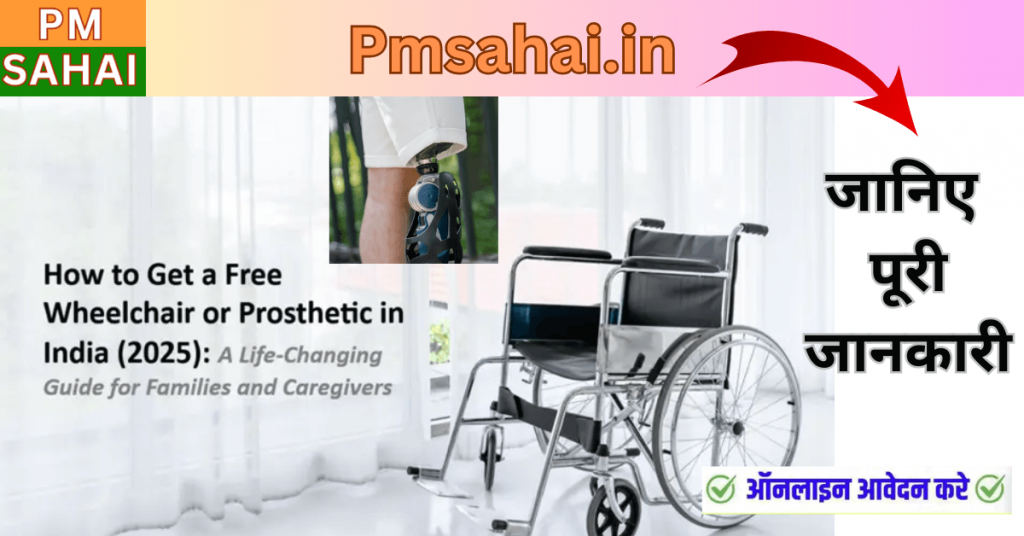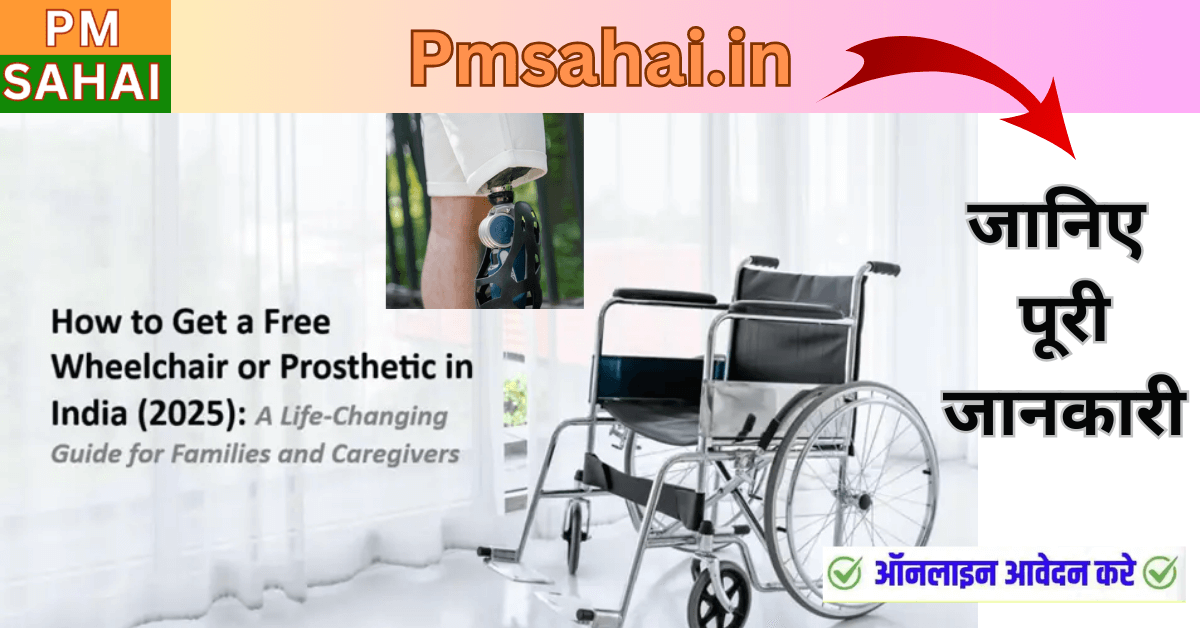Free Walking Device Schemes: In India, Numerous Government initiatives aim to enhance the Quality of life for individuals facing Mobility Challenges. These Programs Provide free walking aids and assistive devices to Eligible Citizens, Ensuring Greater independence and Dignity. Among the most prominent is the Rashtriya Vayoshri Yojana (RVY), a central government scheme designed to support senior citizens from Below Poverty Line (BPL) Households.
Rashtriya Vayoshri Yojana (RVY): A Lifeline for Senior Citizens
Launched by the Ministry of Social Justice and Empowerment, RVY aims to provide free physical aids and assisted-living devices to senior citizens aged 60 and above who belong to BPL families. The scheme focuses on individuals suffering from age-related disabilities such as low vision, hearing impairment, locomotor disability, and loss of teeth. Implemented through the Artificial Limbs Manufacturing Corporation of India (ALIMCO), the program ensures that beneficiaries receive high-quality devices tailored to their specific needs.

Key Features of RVY:
- Eligibility Criteria:
- Senior citizens aged 60 and above.
- Belonging to BPL families with a monthly income of less than ₹15,000.
- Suffering from age-related disabilities.
- Devices Provided:
- Walking sticks, elbow crutches, walkers, tripods/quadpods.
- Wheelchairs, hearing aids, artificial dentures, spectacles.
- Implementation:
- Distribution through camps organized across districts.
- Free maintenance of devices for one year.
- Assistance provided based on individual needs assessment.
The scheme has already benefited over 12 lakh elderly citizens, significantly improving their mobility and quality of life.
🏥 Other Notable State-Level Initiatives
While RVY operates at the national level, several states have introduced their own programs to cater to specific local needs:
1. Tamil Nadu’s Walking Device Scheme for Differently Abled Children
The Government of Tamil Nadu’s initiative provides rollators or walkers to orthopedically differently-abled children who face difficulties in walking. This support aids in their walking training and mobility. Applications are accepted offline at the District Differently Abled Welfare Office.
2. Uttar Pradesh’s Assistive Equipment Grant Scheme
In Uttar Pradesh, the government offers financial grants to persons with disabilities for purchasing artificial limbs and auxiliary equipment. The maximum grant amount is ₹15,000, aimed at individuals whose family income does not exceed the state’s BPL limit.
3. Delhi’s Sugamya Sahayak Yojana
The Delhi government provides free equipment to people with disabilities under the Sugamya Sahayak Yojana. This includes motorized tricycles, smart sticks, folding active wheelchairs, artificial limbs, walking sticks, hearing aids, crutches, walkers, and rollers. An agreement has been finalized with ALIMCO for the purchase of equipment, with a budget of over ₹10 crore allocated for the scheme.
📝 Application Process and Access
To avail of these schemes, eligible individuals can:
- Register Online: Through the ‘ALIMCO Mitra’ mobile app available on the Google Play Store.
- Attend Distribution Camps: Participate in camps organized by local authorities where devices are distributed.
- Visit Government Offices: Apply at district-level offices responsible for welfare of differently-abled persons.
It is essential to carry proof of identity, BPL status, and medical certificates detailing the disability to ensure smooth processing of applications.
🌟 Impact and Significance
These initiatives have profoundly impacted the lives of beneficiaries by:
- Enhancing Mobility: Providing the necessary tools for individuals to move independently.
- Promoting Dignity: Enabling recipients to perform daily activities with greater ease.
- Reducing Dependency: Allowing individuals to lead more self-sufficient lives.
- Encouraging Social Participation: Facilitating involvement in community and social activities.
These schemes not only address physical challenges but also contribute to the emotional and psychological well-being of recipients by fostering a sense of independence and self-worth.
🔍 Conclusion
Free Walking Device Schemes: India’s free walking device schemes represent a significant step towards an inclusive society where individuals with mobility challenges can lead independent and fulfilling lives. Through continued awareness, accessibility, and support, these initiatives can further empower citizens, ensuring that no one is left behind in the journey towards a more equitable future.

